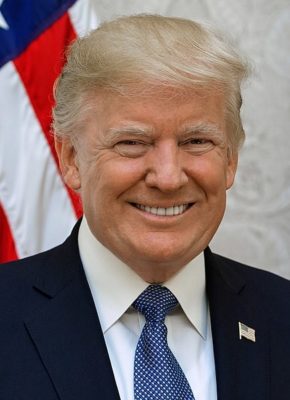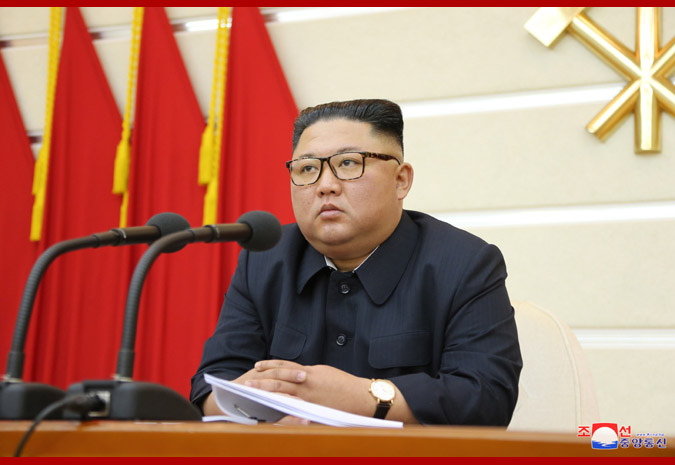Table of Contents
- Forging Ahead: 78% of Ghanaians Express Optimism Despite Economic Headwinds – In-depth ghana news and perspectives on national development and future prospects.
- Economic Resilience and Public Sentiment
- The Role of Infrastructure Development
- Energy Sector Enhancements
- Transportation Network Upgrades
- Digital Infrastructure Expansion
- Technological Innovation and the Startup Ecosystem
- Governance and Institutional Strengthening
- Combating Corruption
- Promoting Transparency
- Strengthening Judicial Independence
- Regional Integration and International Partnerships
Forging Ahead: 78% of Ghanaians Express Optimism Despite Economic Headwinds – In-depth ghana news and perspectives on national development and future prospects.
Recent surveys concerning the economic climate in Ghana reveal a surprisingly optimistic outlook among its citizens, despite ongoing challenges. Seventy-eight percent of Ghanaians express confidence in the nation’s future, demonstrating resilience and hope for improvement. This positive sentiment, detailed in newly released reports, is particularly striking given global economic uncertainties and localized inflationary pressures. This ghana news focuses on the factors driving this optimism and exploring the nation’s developmental prospects.
Economic Resilience and Public Sentiment
Despite facing hurdles such as rising inflation and debt management challenges, Ghana’s economy demonstrates underlying strength, contributing significantly to the optimistic mood. The agricultural sector, a cornerstone of the Ghanaian economy, continues to perform robustly, providing employment and ensuring food security. Furthermore, strategic investments in infrastructure and a burgeoning tech industry offer promising avenues for growth. The government’s commitment to fiscal consolidation, while imposing short-term constraints, is perceived as a necessary step towards long-term stability.
The resilience of the Ghanaian people themselves plays a crucial role. A strong entrepreneurial spirit and a vibrant informal sector contribute to economic adaptability. Additionally, remittances from Ghanaians living abroad provide a vital source of income and support for families across the country. This inherent economic agility allows Ghana to weather economic storms and maintain a forward-looking perspective.
However, it is important to acknowledge the uneven distribution of economic benefits. Significant regional disparities and income inequality persist, creating pockets of vulnerability. Addressing these imbalances is crucial to ensure that the optimistic outlook is shared by all segments of society. Targeted social programs and investments in education and healthcare are essential to fostering inclusive growth.
| Key Economic Indicator | 2022 | 2023 (Projected) |
|---|---|---|
| GDP Growth Rate | 3.4% | 4.5% |
| Inflation Rate | 31.7% | 25% |
| Unemployment Rate | 4.2% | 4.0% |
The Role of Infrastructure Development
Investment in infrastructure is a fundamental driver of Ghana’s developmental prospects. Ongoing projects in transportation, energy, and communication are designed to facilitate economic activity, attract foreign investment, and improve the quality of life for citizens. The expansion of port facilities, for example, is enhancing the country’s trade capacity and reducing logistical bottlenecks. Improved road networks are connecting rural communities to urban centers, fostering economic integration and access to markets.
However, infrastructure development also presents challenges. Securing adequate funding, ensuring project transparency, and mitigating environmental impacts are critical considerations. Effective project management and robust regulatory frameworks are essential to maximizing the benefits of infrastructure investments and minimizing risks. Building sustainable infrastructure requires a long-term vision and a commitment to responsible resource management.
Furthermore, leveraging public-private partnerships is becoming increasingly important in financing infrastructure projects. This approach allows the government to share the financial burden and tap into private sector expertise and innovation. Successfully implementing PPPs requires a clear legal framework, transparent procurement processes, and a stable investment climate.
Energy Sector Enhancements
Ghana’s energy sector is undergoing significant transformation, with increased focus on renewable energy sources. The government is actively promoting investments in solar, wind, and hydro power to diversify the energy mix and reduce reliance on fossil fuels. This transition is not only environmentally beneficial but also enhances energy security and resilience. However, expanding renewable energy capacity requires substantial upfront investment and technological advancements.
Transportation Network Upgrades
Significant strides are being made in upgrading Ghana’s transportation network, including improvements to road, rail, and air infrastructure. Modernizing the railway system, in particular, has the potential to transform freight transport and reduce congestion on roadways. Expanding airport capacity and improving air traffic management are also priorities. These upgrades are essential to supporting economic growth and regional connectivity.
Digital Infrastructure Expansion
Investing in digital infrastructure is critical for fostering innovation, promoting digital literacy, and expanding access to information and services. Expanding broadband internet access, particularly in rural areas, is essential to bridging the digital divide and empowering communities. The government is implementing initiatives to promote digital entrepreneurship and develop a skilled workforce for the digital economy.
Technological Innovation and the Startup Ecosystem
Ghana’s burgeoning tech industry is attracting global attention, driven by a young, dynamic, and entrepreneurial population. A vibrant startup ecosystem is emerging, fueled by innovation hubs, incubators, and angel investors. Fintech, agritech, and healthtech are among the sectors experiencing rapid growth. This technological dynamism is creating new employment opportunities and driving economic diversification.
However, the startup ecosystem faces challenges. Access to funding, mentorship, and infrastructure remains limited. Improving the regulatory environment, reducing bureaucratic hurdles, and fostering a supportive business climate are crucial to unlocking the full potential of Ghana’s tech industry. Additionally, bridging the digital skills gap is essential to ensuring that the workforce is equipped to meet the demands of the evolving technology landscape.
The government is actively promoting initiatives to support the startup ecosystem, including providing seed funding, offering tax incentives, and streamlining regulatory processes. Creating a vibrant innovation ecosystem is seen as a key driver of sustainable economic growth and job creation.
- Fintech Innovations: Mobile money platforms are revolutionizing financial inclusion.
- Agritech Solutions: Precision farming techniques enhance agricultural productivity.
- Healthtech Advancements: Telemedicine expands access to healthcare services.
Governance and Institutional Strengthening
Good governance and strong institutions are foundational for sustainable development. Enhancing transparency, accountability, and the rule of law is crucial to attracting investment, promoting economic stability, and improving the quality of life for citizens. Strengthening judicial independence, combating corruption, and promoting free and fair elections are essential to fostering a democratic and prosperous society.
The Ghanaian government is implementing reforms to strengthen governance institutions, including improving public financial management, enhancing procurement processes, and combating corruption. However, challenges remain. Building institutional capacity, promoting public sector reform, and fostering a culture of accountability are ongoing priorities. Strengthening civil society organizations and promoting civic engagement are also essential to achieving good governance.
Furthermore, decentralization is a key component of Ghana’s governance agenda. Empowering local authorities and devolving decision-making power to the grassroots level are seen as crucial to promoting inclusive development and ensuring that policies are responsive to local needs. Effective decentralization requires adequate resources, capacity building, and robust monitoring and evaluation mechanisms.
Combating Corruption
Combating corruption is paramount for fostering trust in government and ensuring that public resources are used effectively. Strengthening anti-corruption institutions, enhancing transparency in public procurement, and promoting ethical leadership are crucial steps. Effective enforcement of anti-corruption laws and holding perpetrators accountable are also essential. Public awareness campaigns and promoting civic engagement can also help to combat corruption.
Promoting Transparency
Promoting transparency in governance is vital for building trust and accountability. Publishing government contracts, asset declarations of public officials, and budget information can increase public scrutiny and reduce opportunities for corruption. Utilizing technology to enhance transparency, such as online portals for public procurement information, can also be effective.
Strengthening Judicial Independence
Ensuring the independence of the judiciary is critical for upholding the rule of law and protecting citizens’ rights. Protecting judges from political interference, providing adequate resources for the judiciary, and ensuring fair and impartial dispute resolution are essential. A strong and independent judiciary is vital for fostering investor confidence and promoting economic stability.
Regional Integration and International Partnerships
Ghana is actively engaged in regional integration efforts, particularly within the Economic Community of West African States (ECOWAS). Promoting trade, investment, and cooperation with neighboring countries is seen as crucial to fostering economic growth and regional stability. Participating in the African Continental Free Trade Area (AfCFTA) presents significant opportunities for expanding Ghana’s trade and attracting foreign investment.
However, regional integration also presents challenges. Addressing infrastructure deficits, harmonizing trade policies, and resolving cross-border disputes are essential to realizing the full benefits of regional cooperation. Strengthening institutional frameworks for regional integration is also crucial. The continued commitment of Ghana’s leaders to fostering regional partnerships remains critical to its long term growth.
Furthermore, maintaining strong international partnerships is vital for securing development assistance, attracting foreign investment, and promoting economic diplomacy. Ghana actively engages with bilateral and multilateral development partners, seeking support for its development priorities. Cultivating mutually beneficial partnerships is essential.
| Partner Country/Organization | Key Areas of Cooperation |
|---|---|
| United States | Economic Development, Governance, Health |
| European Union | Trade, Agriculture, Infrastructure |
| China | Infrastructure, Investment, Trade |
- Strengthening economic fundamentals through fiscal discipline.
- Investing in human capital through education and healthcare.
- Promoting good governance and the rule of law.
- Fostering technological innovation and entrepreneurship.
- Deepening regional integration and international partnerships.
In conclusion, the prevailing optimism among Ghanaians, supported by reasons in sustained economic activity, infrastructure development, and technological advancements, paints a hopeful picture for the future. Addressing regional inequalities, strengthening governance institutions, and fostering strategic international partnerships are all crucial. Ghana’s ongoing commitment to sustainable development, coupled with the resilience and ingenuity of its people, sets the stage for a prosperous future.







